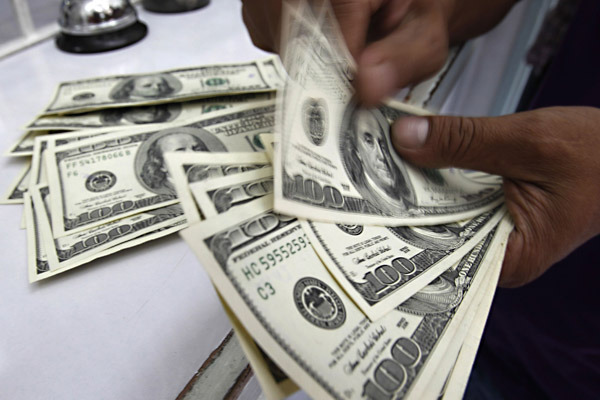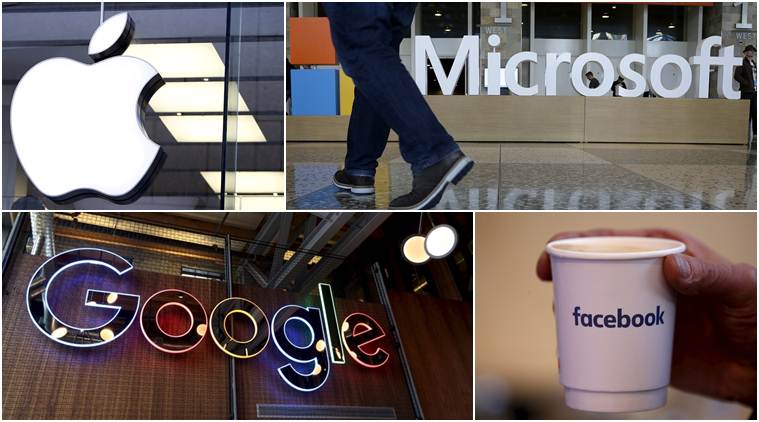by Ron Rimkus, CFA, CFA Institute
When we talk about finance, it often becomes so abstract that it loses all relevance to our everyday lives. That’s a problem. I want to do something about it, so I am beginning this post by talking about my mom.
Her name is Joan Rimkus. She will be 77 years old this year. She is a mother to six, and to 24 other people, she is affectionately known as Grandma. Anyone who knows her will say how extraordinary she is. She is kind, generous, easygoing, funny, and smart. And she is always in a good mood. The older I get, the more amazing I find this. But it’s true, she is!
Over the years, my mom has worked in a variety of jobs, including as a self-employed tax preparer. Both my parents have been very generous and giving over the years — possibly to a fault. They don’t have much in the way of financial assets, but they have the love and admiration of many people whose lives they have touched in countless ways.
But more on my mom in a moment.
Recently, there has been a global movement toward eliminating cash. It sounds strange, almost bizarre. It is not the elimination of money per se that is being proposed, just hard currency. So many questions: Who exactly wants to eliminate cash? Why? What would we do without it? And how will it affect my mom?
Let’s start by examining the who. A spontaneous coalition of players has arisen in support of digital money: credit card processors like Visa and Mastercard, banks, governments, media companies, technology companies, academics, and central bankers. To be clear, we are not talking about bitcoin here. We are referring to some form of digital currency remaining under the control of the government.
If a higher percentage of all transactions were conducted with credit cards, then credit card processors could earn more in fees. Likewise, the technology companies behind digital payment platforms stand to benefit as transactions shift to the digital arena. So it is easy to understand their interest in a cashless society. But what about the rest of them?
Peter Sands, a senior fellow at the Harvard Kennedy School, authored a paper titled “Making it Harder for the Bad Guys: The Case for Eliminating High Denomination Notes.” He advocates removing large bills from circulation to disrupt the “business models” of bad actors. A fair and just society is good for everyone, so disrupting bad actors would be good for my mom.
Just across the Harvard campus, Kenneth Rogoff wrote a book, The Curse of Cash, in which he argues that not only will a cashless economy help stem criminal activity and improve tax collections, it will also help central banks produce negative interest rates without any limits.
Since the financial crisis, the world has become more indebted and monetary policy is more dependent on lowering rates. Governments rely more on credit to stimulate economic growth. With rates so low in developed economies — and moderately negative in Europe and Japan — forward-thinking academics, central bankers, and investors are realizing that governments will not have the flexibility to provide stimulus during the next recession or financial crisis. The reason for this is the “zero bound” theory: Interest rates can’t go too far below zero because it no longer makes sense to lend money if you have to pay to do so.
What does this mean? Banks would have to charge the public to hold its money.
Would this be good for my mom? No. Nevertheless, the realization that we have approached the zero bound seems to have spawned a whole cottage industry of research into negative rates.
In “Breaking Through the Zero Lower Bound,” authors Ruchir Agarwal and Miles Kimball propose a currency deposit fee that would eventually let deposit balances fall below par. This is a fancy way of saying that depositors will lose money. Is this any good for my mom? No again.
In “The Case for Unencumbering Interest Rate Policy at the Zero Bound,” Marvin Goodfriend states:
“The zero interest bound encumbrance on monetary policy should be removed so that movements in the intertemporal terms of trade can be reflected fully in interest rate policy to sustain price stability and full employment with a minimum of inefficient and costly alternative policies.”
In short, he suggests that a cashless society would enable central banks to produce negative interest rates at any level.
If a -1% rate doesn’t do the trick, maybe -5% will. If -5% doesn’t cut it, perhaps -10% will. In fact, there would be no limit to how low negative rates could go.
After a lifetime of earning interest on the money my mom has deposited at her local bank, now she suddenly has to pay that bank for the “privilege” of giving them her money? No, this is not good for Mom either.
Assume my mom deposits $110,000 into XYZ bank. If the bank makes bad loans and teeters on bankruptcy, but the new cashless society allows banks to bail-in depositors with just a computer keystroke, shouldn’t my mom have the choice to put her money in the bank or to take it out?
In essence, a cashless society gives governments an extraordinary new power: the ability to tax wealth – including my mom’s, even though she is not “wealthy.”
In practice, if the world converted to a cashless society, Mom could still choose what she buys, how she invests, what she does with her money. But she would lose the freedom to withhold her money from the banking system.
Without the balancing power of public choice, the incentive for banks would shift toward growth — and political interests — over prudent lending standards. They would have the opportunity to invest in a wide range of risky assets and engage in risky behaviors. So, the deck is stacked against my mom. Sure, she can still buy stocks, bonds, real estate, and other assets, but the quality of these assets would themselves be changed by such a policy.
And because of systemic risk, not “all banks” have to misbehave to bring down the whole system.
The magnitude of this change cannot be overstated. At bottom there is a delicate balance among governments that produce and regulate the levels of hard currency through central banks, commercial banks that lend money to the public (as well as to other banks), and the public that chooses how to allocate their money.
While the vast majority of people don’t stop and think about such arcane issues as the monetary system, the mad scientists of monetary policy never stop. The war on cash has already begun in India. The United Kingdom, Norway, Sweden, Australia, Canada, France, Germany, Hong Kong, and the EU, among others, have been actively exploring government-administered digital money systems for all the sames reasons. However, the ability of the public to choose whether or not to place their money in a bank acts as a vital restraint on the interests of banks, governments, and other actors. The checks and balances of the system are at risk.
Too often economists discuss policy in the context of what is best, as if there is only one “best” answer to a given question. In the real world, legal, moral, social, and economic structures overlap. Even when one best answer is empirically possible, “what is best” is entirely dependent upon the goal one is trying to achieve. When different groups have vastly different goals and interests, what is best is entirely subjective.
What is best for savers is high interest rates. What is best for borrowers is low interest rates — or maybe the ability to default with little or no consequence. What is best for banks is having more transactions performed through the banking system via credit cards, debit cards, or other bank-sponsored payment methods. What is best for governments is for every transaction to be monitored and every possible tax dollar collected. What is best for central banks is to fully control the money supply so that they can create negative rates at will. What is best for politicians is to grow the economy regardless of how costly their policies are.
What is best for my mom is to be able to save her hard-earned money without it being unduly depleted by inflation, taxation, or bail-ins. And, maybe, to be able to opt into or out of the banking system by her choice.
The mad scientists have other ideas, despite the problems they will create for my mom. And your mom. And the millions of people just like them.
Copyright © CFA Institute














